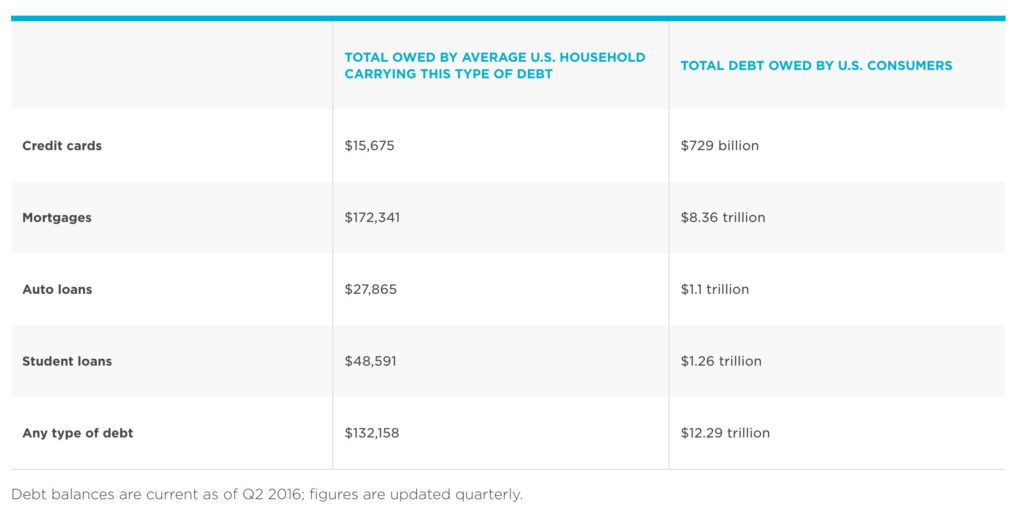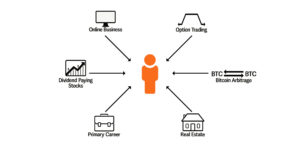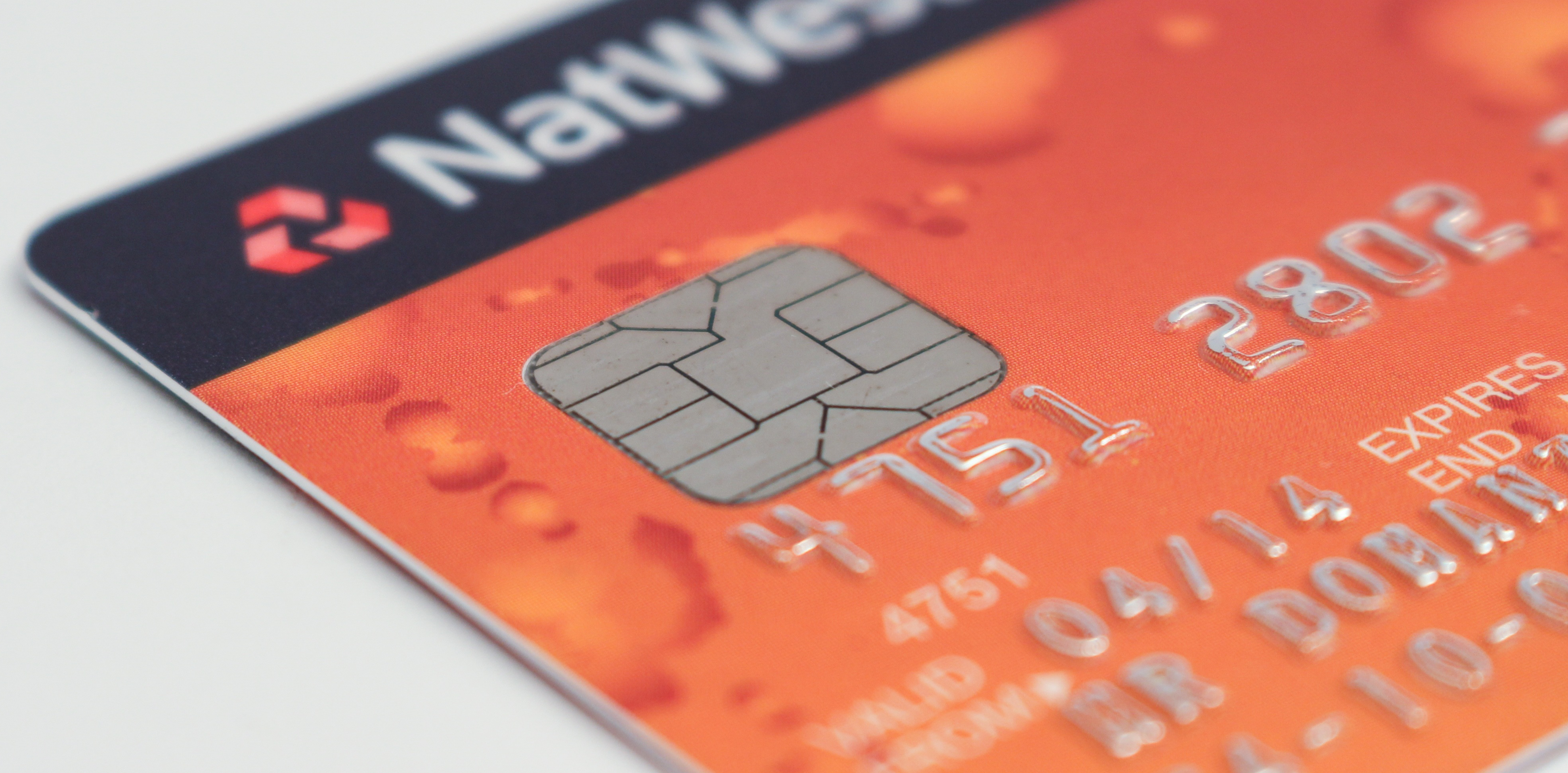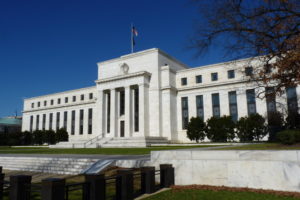
by John | Dec 4, 2016 | Capital Appreciation, Insurance, Personal Journey, Saving Money, Value Investing, Wealth Protection
“We teach about how to drive in school, but not how to manage finances.” – Andy Williams
I didn’t learn much about personal finance or how to build wealth in school.
Even though I find art history, World War II, and the Pythagorean theorem interesting and important areas of study–I can think of few topics with more day to day relevance than personal finance.
But if it weren’t for two finance electives I took in college I wouldn’t have learned anything about personal finance in school.
There are powerful wealth lessons that schools could teach but for some reason do not.
Five Powerful Wealth Lessons School Didn’t Teach
1) I must Produce more than I consume to Build Wealth
I can’t say it better than Simon Black:
The Universal Law of Prosperity is very clear– in order to build wealth you have to produce more than you consume. – Simon Black
Source: https://www.sovereignman.com/trends/this-entire-system-is-rigged-against-your-prosperity-18760/
This basic concept isn’t taught in school and as a result we get polls like: “Two-thirds of Americans would have difficulty coming up with the money to cover a $1,000 emergency.”
Source: http://apnorc.org/news-media/Pages/News+Media/Poll-Two-thirds-of-US-would-struggle-to-cover-$1,000-crisis.aspx
The United States can also boast the following numbers:

Source: https://www.nerdwallet.com/blog/credit-card-data/average-credit-card-debt-household/
If you consume more than you produce, the only option is to go into debt, which is a sure way to become poor.
In school I never learned the powerful wealth lesson: I must Produce more than I consume to Build Wealth.
2) Money Loses Value Because of Central Banks
I think most people KNOW that money loses value (or at least that things are getting more expensive each year), but for anyone who disagrees here are some facts:
- In 1950 a new house cost $8,450 in 2016 the average is over $300,000 (3,450% increase)
- In 1950 a gallon of gas was 18 cents in 2016 it is $2.40 (1,233% increase)
- In 1950 the average cost of new car was $1,510.00 in 2016 it is $33,560 (2,122% increase)
- In 1950 the average income per year was $3,210 in 2016 it is $55,000 (1,613% increase)
Source: http://fuelinsights.gasbuddy.com/content/docs/2016forecast.pdf
Source: www.thepeoplehistory.com/1950s.html
Source: www.deptofnumbers.com/income/us
Source: www.usatoday.com/story/money/cars/2015/05/04/new-car…price-3…/26690191/
Those are stats specific to the United States but I know you’d find similar statistics throughout the world.
Dollars (and other fiat currencies) are losing value. Incomes are not keeping up with the rising costs of homes and automobiles, the two major types of purchases many people will make.
Saving money in dollars is a sure way to get wiped out.
Money doesn’t lose value because of some mysterious force or greedy businesses, it loses value because of central banks. This is something I’m passionate about because it is simply robbery. Not only is price inflation robbery, but it most directly harms the poor. I’ve written about the Downfall of the US Dollar and What Causes Inflation.
In school I never learned the powerful wealth lesson: Money Loses Value Because of Central Banks.
3) I’m on my Own for Retirement
In over 18 years of education in US government schools I can’t recall ever learning about the failure of US government programs.
There are countless examples.
One is state public pensions. They are woefully underfunded. Alaska, California, and Illinois are some of the worst offenders when it comes to underfunded pensions.
However, all fifty of these United States plus the District of Columbia suffer from underfunded public pensions.
Source: http://www.zerohedge.com/news/2016-12-02/stanford-study-reveals-california-pensions-underfunded-1-trillion-or-93k-household
Two more in-progress failures are Social Security and Medicare. (To be fair, I did learn about the insolvency of these programs in FIN 232, my senior year of college.)
The Medicare Trustees’ report indicates the Medicare program is underfunded and revenue is less than expenditures.
Source: https://www.cms.gov/Research-Statistics-Data-and-Systems/Statistics-Trends-and-Reports/ReportsTrustFunds/index.html?redirect=/reportstrustfunds/
The Social Security Trustees’ report indicates that Social Security is underfunded as well.
Source: https://www.ssa.gov/oact/tr/
This isn’t some tin-foil hat conspiracy. Below is a direct quote (from 2015) from the Social Security and Medicare Boards of Trustees:
Social Security’s Disability Insurance (DI) Trust Fund now faces an urgent threat of reserve depletion, requiring prompt corrective action by lawmakers if sudden reductions or interruptions in benefit payments are to be avoided. Beyond DI, Social Security as a whole as well as Medicare cannot sustain projected long-run program costs under currently scheduled financing.
Source: https://www.ssa.gov/oact/TRSUM/2015/index.html
I never learned about the importance of saving for retirement in school. I never learned about investing, IRAs, 401ks, pensions, or Health Savings Accounts. (Again, I did learn about these in FIN 232, my senior year of college.)
If you’re under 40 and you live in the US and you think you can count on Social Security and Medicare (or a public pension) I think you’ll be in for a rude surprise.
Social Security and Medicare are broken. Plain and simple. “But politician X will save these programs!” you might be tempted to think.
Here is another quote from the above report:
“Social Security and Medicare together accounted for 42 percent of Federal program expenditures in fiscal year 2014.”
This is the same Federal Government that is $20 trillion in debt. If the US Federal Government bails out Social Security and Medicare, who is going to bail out the Federal Government?
People need to make their own preparations!
In school I never learned the powerful wealth lesson: I’m on my Own for my Retirement.
4) College Isn’t Right for Everyone

Will this guy have to go $200,000 in debt to get a degree in British Literature?
How many times have you heard something to the effect of: “Study hard, go to college, get a good job and then retire at age 65.”?
That approach CAN work, but high school seniors need to be asking themselves, “does it make sense to go $150,000+ in debt for an art history degree?”
I took an art history class in college and I really enjoyed it. But if I knew how much I was paying for that class I would probably have done a lot better going to a museum or buying a few books.
If, for example, you can get a chemical engineering degree for $100,000 and are then able to make $70,000 per year right out of college then it starts to make more sense. But people need to start making those cost benefit and ROI calculations.
Young people need to stop assuming that college is a good idea. It depends on the cost of the education and how much that degree will allow you to earn once you graduate.
In school I never learned the powerful wealth lesson: College Isn’t Right for Everyone.
5) There is a Difference between Good Debt and Bad Debt
 There is good debt and there is bad debt.
There is good debt and there is bad debt.
Taking out a $35,000 loan to buy a brand new car is very expensive. Maybe you’re making enough money that you can afford to treat yourself to a new car every 2-3 years and maybe leasing an automobile makes sense in that case.
But a good used car that is 5-6 years old makes a lot more financial sense particularly if you aren’t making a lot of money.
On the other hand, taking out a $200,000 loan to buy an income producing rental property could make a lot of sense.
Taking out a loan to buy new shoes or a car or other consumable items is bad debt.
Taking out a loan to buy an income producing asset is good debt.
In school I never learned the powerful wealth lesson: There is a Difference between Good Debt and Bad Debt.
I Learned a lot about Personal Finance outside of School
I learned a lot about personal finance from my parents, by reading, talking to experts, attending seminars and trial and error. In some ways it’s a good thing I didn’t learn about personal finance in school because I probably wouldn’t have learned as much and most likely would have been taught things that aren’t true that I would have had to unlearn.
The important takeaway is that financial education is critically important and that it’s up to YOU to make sure you learn what you need to know.

by John | Nov 27, 2016 | Preservation of Purchasing Power, Saving Money, Wealth Protection
I favor gold over Bitcoin as a long-term store of value. I do think that blockchain technology is here to stay for a long time. However, I question the long-term viability of Bitcoin.
But before I get into that I want to say that if someone loves Bitcoin and hates gold they are free to own Bitcoin and no one will force them to own a single gram of gold! The opposite is also true. You can also own some combination of both!
For me, I’ve chosen to own much more Gold than Bitcoin but I still own both.
I’ve written about how I buy bitcoin and also about bitcoin arbitrage. I’ve also written about owning physical gold outright and physical gold through Goldmoney.
I do think having a very small percentage of my assets in crypto currency is appropriate for me but I’m leery of having too much of my net worth in cryptocurrency.
So with that in mind I present gold versus Bitcoin. This is a comparison between the two as I think of it. What you value or find important will likely be different.
That is the great thing about free markets: there doesn’t have to be one answer that is forced on everyone.
What I like about Bitcoin
International Value Transfer
I think BTC beats everything else out there for international value transfer. I’ve done international wire transfers and domestic wire transfers in traditional government fiat currency and Bitcoin is faster, easier and cheaper than anything else I’ve used.
Bitcoin has Advantages over Fiat Money
Dollars (and other fiat money) are constantly being devalued and destroyed via fractional reserve banking and central bank debt monetization and money “printing”. The total number of Bitcoins that will ever exist is set by how the bitcoin algorithm is coded.
What I don’t like about Bitcoin
It is Centrally Controlled
A disillusioned insider I came in contact with has swayed me to the opinion that Bitcoin is not decentralised. The decisions about Bitcoin are made by the Bitcoin Foundation and a few of the larger miners.
Bitcoin evangelists will tout Bitcoin as being decentralised. I’m open to new arguments and evidence supporting that Bitcoin is in fact decentralised but as of now I see Bitcoin as being centrally controlled.
It’s Direct-Use Value is Very Low
Some people argue that there is direct-use value in Bitcoin. It can be used as an experiment, political statement, etc. Others argue that Bitcoin has no direct-use value.
 Even if Bitcoin is valued for direct use I think that value is very low. Dollars have some direct use value as well, for example kindling, tacky wallpaper, etc, but it is a fraction of the value dollars currently command in trade.
Even if Bitcoin is valued for direct use I think that value is very low. Dollars have some direct use value as well, for example kindling, tacky wallpaper, etc, but it is a fraction of the value dollars currently command in trade.
The reason I think this is a problem is because the direct-use value (aka non-monetary use value which is also sometimes called “intrinsic value”) provides a floor.
Government fiat currencies and Bitcoin have little (or zero) direct-use. So when these mediums of exchange fall out of favor, they can go to zero or near zero.
Bitcoin Could be Replaced by a Better Cryptocurrency
Bitcoin has some issues in my opinion. Bitcoin could be improved to overcome those issues, but it is also possible one of the myriad of alternative coins (called “altcoins”) could become more popular than Bitcoin and eventually replace what is currently the most established and largest cryptocurrency.
Delay in Confirmations

Virtually all vendors require a certain number of confirmations after Bitcoin is sent before it is confirmed and is considered successfully sent. This is to avoid the problem of double-spending.
Bitcoin takes about 10 minutes per confirmation. In the world of the internet, 10 minutes is a long time. Some vendors require 2 or 3 confirmations, which would take between 20-30 minutes. That is a really long time.
Scalability
There are also concerns about the scalability of Bitcoin.
There are probably other reasons that haven’t even been invented yet that could make some new Bettercoin™ a superior choice to Bitcoin.
So while the number of Bitcoins is fixed the number of competing altcoins is not fixed.
Competing altcoins can serve to devalue Bitcoin. I like it when companies compete for my business to lower price but if I owned $1,000 worth of Bitcoin and then BetterCoin™ comes out and everyone switches to it, my $1,000 worth of Bitcoin could drop to a small fraction of a dollar in value.
The United States Commodities Futures Trading Commission (CFTC) declared Bitcoin is a commodity
Which means it’s taxable as a commodity.
Just because the government decrees that something is the case doesn’t mean that it is true.
Various elements of the US government can say that dollars are a store of value but that doesn’t mean they are.
I can disagree with the CFTC intellectually. But I obviously can’t ignore what the government says if I don’t want to get fined or go to jail.
Like most Americans I’m afraid of the Internal Revenue Service (IRS) so compliance with all appropriate tax laws is very important to me.
That means that every time I transact in Bitcoin I have to keep track of my cost basis and pay any appropriate capital gains.
Security
Mt. Gox, Bitfinex, and countless other exchanges have been hacked. You have to be kinda savvy to secure your Bitcoins. Plus, if you go the cold storage route you lose may of the benefits of Bitcoin as a medium of exchange.
What I don’t like about Gold
Gold isn’t used as Money or a Medium of Exchange
Few if any retailers will accept gold as payment for goods and services. One must first convert the gold into money and then spend the money.
Gold is not considered a currency and like Bitcoin does not get favorable tax treatment.
It could be Confiscated
The United States government has made gold bullion ownership illegal in the past and could do so again. Therefore any gold held in the US is susceptible to confiscation. I think it is unlikely this will happen again because not very many people own gold bullion, as compared to years past, but this is a possibility.
You Can’t use it to Buy Stuff Online
I can’t get onto Overstock.com and use physical gold in my possession to buy goods or services. What that would look like would be to mail in a shipment of gold, Overstock would wait until the gold arrives, and then ship out what I ordered.
I think the Paper Gold Markets are Manipulated
I think governments have a vested interest in keeping the price of gold down. I think the gold futures markets are manipulated down. While I think that this manipulation is not sustainable and eventually the price of gold will reflect supply and demand fundamentals, it is annoying in the short term. On the flip side, gold manipulation does provide a lot of great buying opportunities.
What I like about Gold
It’s Been Valued for 3,000 years
Despite all the changes since 1,000 B.C. gold is still valued by billions of people.
It has Significant Direct-Use Value
Gold is used in electronics, jewelry, dentistry, satellites, and decoration. Even though gold is not used as money or a medium of exchange today it is still valued by billions of people.
How many people would want US dollars if they weren’t used as money?
Gold is a Natural Element that Satisfies the Classical Requirements of Money
Gold is one of the least reactive chemical elements. Gold that has been lost on the ocean floor for hundreds of years is still in the same shape it was when the ship went down.
Gold is durable, portable, scare, divisible and uniform. Gold can act as a unit of account, a medium of exchange and a store of value.
Gold is Scarce
A new element that has all the properties of gold is unlikely to be discovered or created.
New gold can only be created in a nuclear reaction and gold can only be pulled out of the ground with significant effort and time.
Mining gold-rich asteroids would also be tremendously expensive and dangerous.
Gold can be used with Payment Technologies
Much of the below thought is from or inspired by Roy Sebag. Mr. Sebag makes a distinction between money technologies and payment technologies.
Money Technologies
Dollars and Euros are debt-based, fiat money technologies or assets that can act as a store of value (albeit poor stores). Gold is an asset that can act as a store of value. Bitcoins are an asset that can act as a store of value.
Payment Technologies
Credit card networks, Paypal, Apple Pay, Bitcoin, and Ether are examples of payment technologies. These are networks and systems that allow ownership of assets to be transferred.
Buying things online with a credit or debit card, Goldmoney, Paypal, or Bitcoin is simply ownership transfer of an asset via a payment technology.
In the case of credit cards, the credit card network is the payment technology and dollars are the money “technology” or asset being transferred.
In the case of Bitcoin, the Bitcoin blockchain is the payment technology which also has an integrated and inseparable unit of account, also called Bitcoins.
Gold can be used separately from a payment system (physically exchanged), or it could be used in conjunction with another payment system.
Goldmoney is one such service that combines physical gold ownership storage and transfer with the payment technology potential of internet based transactions.
Gold remains a fantastic store of value. I think the best of both worlds in money would be a gold-backed currency or electronic ownership transfer of Gold held at a trusted third party.
In Conclusion
Bitcoin has a very low (if any) direct-use value. That fact combined with the potential for Bitcoin to be supplanted by a superior payment technology makes me skeptical of Bitcoin as a long-term store of value.
I like gold because it has a 3,000 year history of being valued across cultures. It’s scarce and I think it’s extremely unlikely that another element will come along that will be able to replace the desired and historically valued properties of gold.
Not only that, but you can still make payments and spend gold in a way that takes advantage of the electronic payment systems that are so useful today.
Ultimately investors and consumers will make their own decisions. Gold and Bitcoin are competitors but they could also continue to exist side by side for some time.
That is just how gold and Bitcoin compare in my view. Which one do you prefer? Let me know in the comments section below!

by John | Oct 16, 2016 | Active Monthly Income, Geopolitical Risk Protection, Monthly Income, Passive Income, Saving Money
In my culture there is an old adage: “Don’t put all your eggs in one basket.” It’s a quaint agrarian saying that captures a great deal of wisdom.
This principle applies most directly to savings and asset allocation. Savings are key but today I’m writing about income.
 When it comes to income the expression is don’t have all your eggs come from one chicken.
When it comes to income the expression is don’t have all your eggs come from one chicken.
In truth many people have almost no income diversity.
To stretch the analogy way to far: most workers have access to one chicken and in exchange for their work they get a small portion of the eggs the chicken lays. If the chicken stops laying eggs or the person who owns the chicken doesn’t want want or need a worker anymore, then the workers go hungry until they can find access to another chicken.
They have their job (and little to no savings or maybe a little to a lot of debt) and that’s it.
If they lose their job and can’t find another one they are in a very bad place. Without a job many people can’t service the debts they have, they can’t pay for their basic needs, it’s a hot mess. An emergency fund and savings are helpful but I was unemployed for 100 days and it was stressful even though I do have savings!
Unless you’re self employed you don’t own your job and can be let go even if you work hard and do a great job!
Losing a job happens all the time. A company gets bought and people get laid off. “My boss is a jerk and I can no longer stand to work for her.” The industry you’re in collapses. Dollars don’t buy as much and a raise doesn’t cover the difference.
Even if you are gainfully self-employed the market you’re in could contract and squeeze your earnings.
Multiple Income Streams
Multiple income streams, income diversification, it means not keeping all of your income “eggs” coming from just one chicken.
 Multiple income streams provides strength and security. If one has multiple streams of income and lives below their means it isn’t a big deal if one of the income streams stops.
Multiple income streams provides strength and security. If one has multiple streams of income and lives below their means it isn’t a big deal if one of the income streams stops.
If all of your income comes from your job, and you lose your job for any reason, you have to rely on any savings you have until you find another job.
But if you have income from 4 sources and one of them stops yielding; you’re still getting a large percentage of your income.
Going out and getting four full time jobs is probably not possible. I know I’m only one person and can’t be two places at once and there are only so many hours in the week.
Right now my day job is the main engine that drives my economic wagon. But I’m saving money so that won’t always be the case.
I continue to develop additional income streams including ones that make money even while I sleep. Some of the areas I’m capitalizing on are: dividend paying value stocks, bitcoin arbitrage, and trading options. While option trading is somewhat active during regular business hours (unless you place good till cancelled limit orders in the morning or evening), the others can be done with little time outside normal working hours.
I do still want to get into real estate (rental property) that has been on hold until I’m more established in my new career.

It’s popular to talk about diversity and diversification, but when it comes to income the norm seems to be getting one job and working there for a long time. That isn’t always possible, practical or prudent in “today’s economy.” Branching out into multiple sources of income provides most financial resilience and security.

by John | Sep 20, 2016 | Learning from Mistakes, Saving Money
I have several credit cards. All of which I pay off each month.
I have one that I use for most of my expenses: groceries, petrol, utilities, etc. I have it set to be paid automatically each month.
I have a few others that I rarely use unless I’m making a purchase at a specific store. With those cards, I try to pay them off as soon as I make the purchase.
Well this month I made a mistake. I forgot to pay one of my rarely used cards off. I was alerted to my omission the other night via text that I was hit with a $25 late fee.
Ugh. I hate that.
I immediately paid off all my balance. Then I called up the bank and asked if there was anything they could do about the late fee. They said my account was in good standing and they would waive the fee.
Now I don’t think my bank had to do this. After all, they might say “I’m sorry, your payment was late and we can’t help you,” in which case I will have lost $25.
But you don’t know unless you ask.

The Phone I used didn’t look like this.
I caught it within a couple days, called up the bank and got the fees reversed.
I then went in and setup my auto-pay. In this second case I don’t feel as responsible, since I had auto-pay setup, but it is another example that you just have to ask.
Plus if your bank says no, that might be a good reason to take your business elsewhere.





 There is good debt and there is bad debt.
There is good debt and there is bad debt.

 Even if Bitcoin is valued for direct use I think that value is very low. Dollars have some direct use value as well, for example kindling, tacky wallpaper, etc, but it is a fraction of the value dollars currently command in trade.
Even if Bitcoin is valued for direct use I think that value is very low. Dollars have some direct use value as well, for example kindling, tacky wallpaper, etc, but it is a fraction of the value dollars currently command in trade.

 When it comes to income the expression is don’t have all your eggs come from one chicken.
When it comes to income the expression is don’t have all your eggs come from one chicken. Multiple income streams provides strength and security. If one has multiple streams of income and lives below their means it isn’t a big deal if one of the income streams stops.
Multiple income streams provides strength and security. If one has multiple streams of income and lives below their means it isn’t a big deal if one of the income streams stops.

